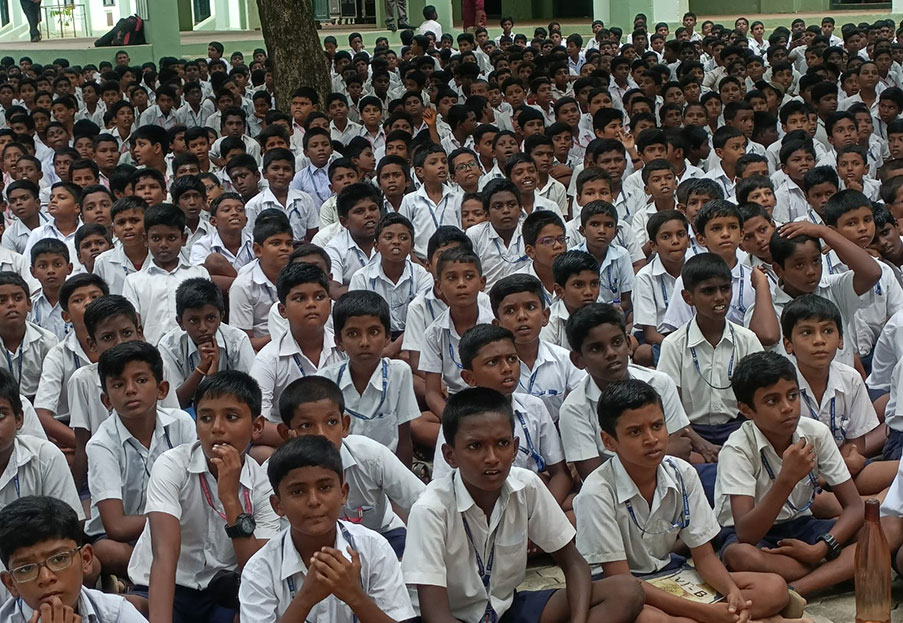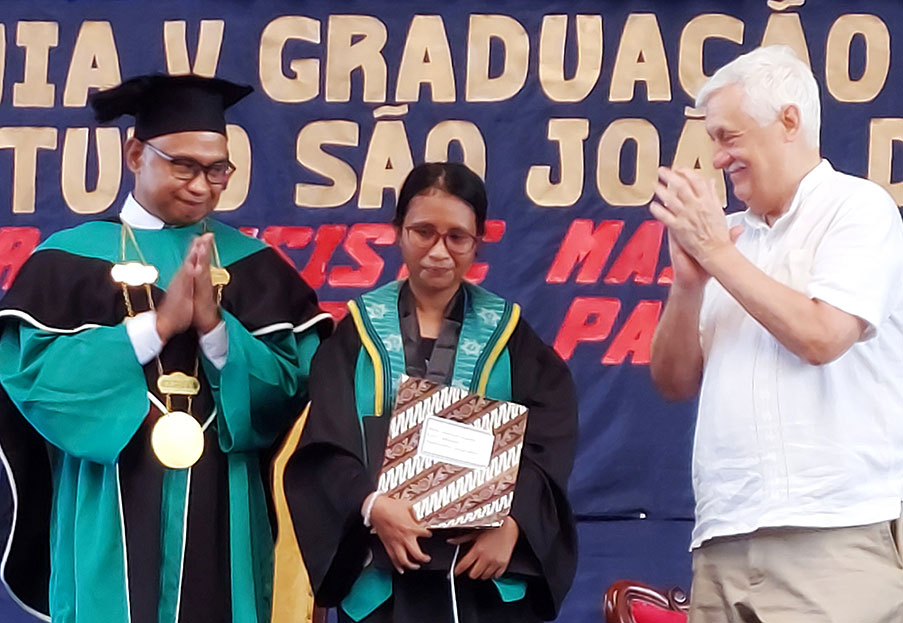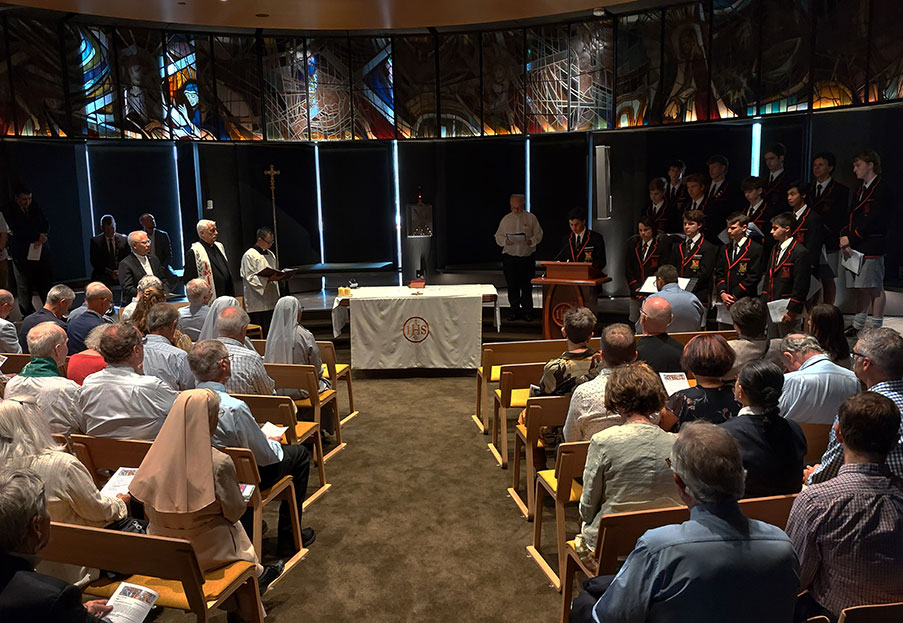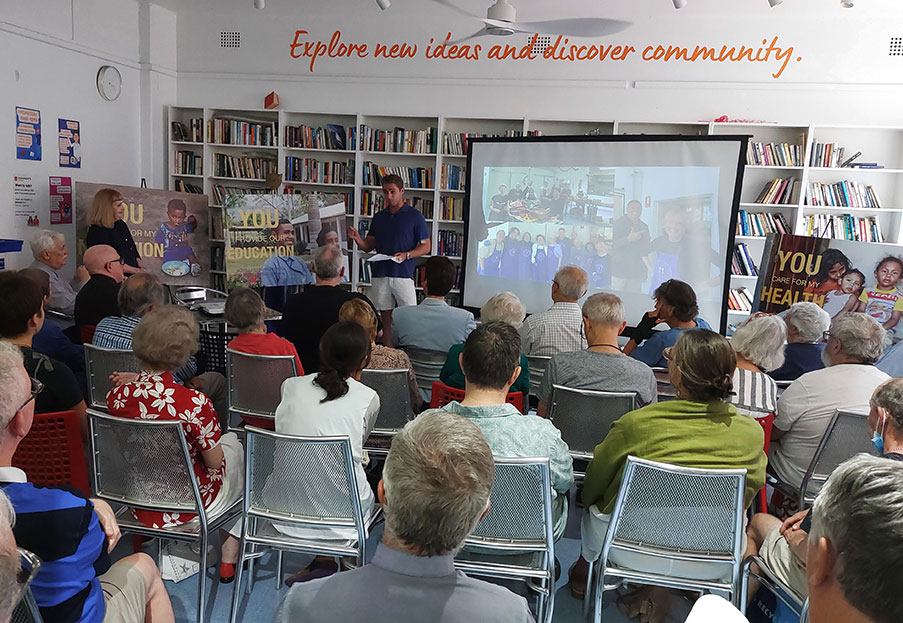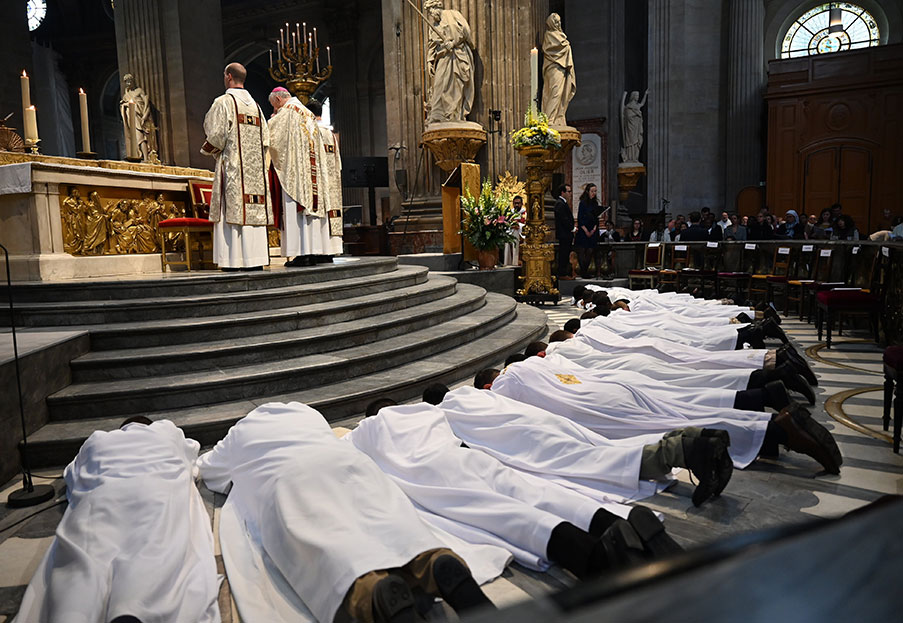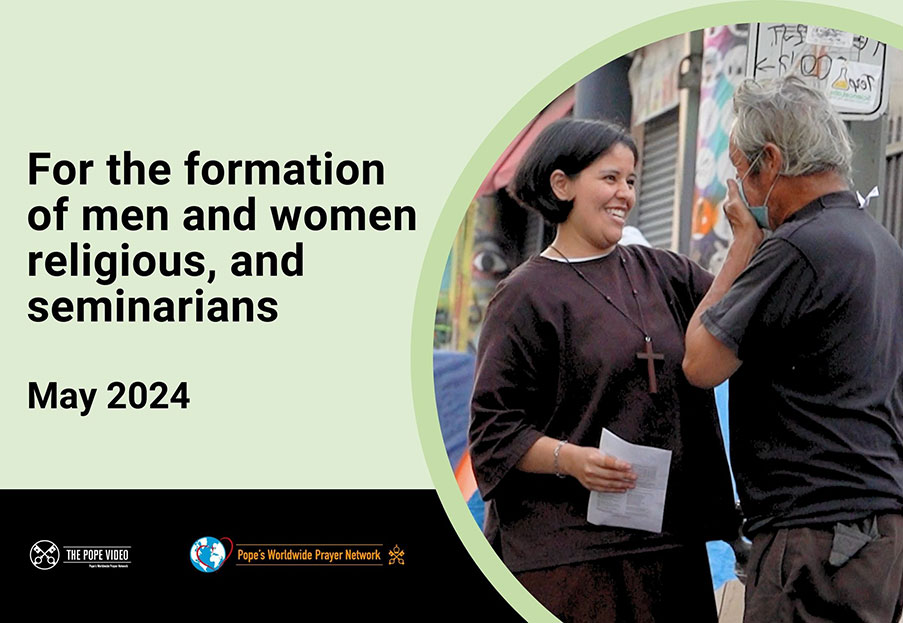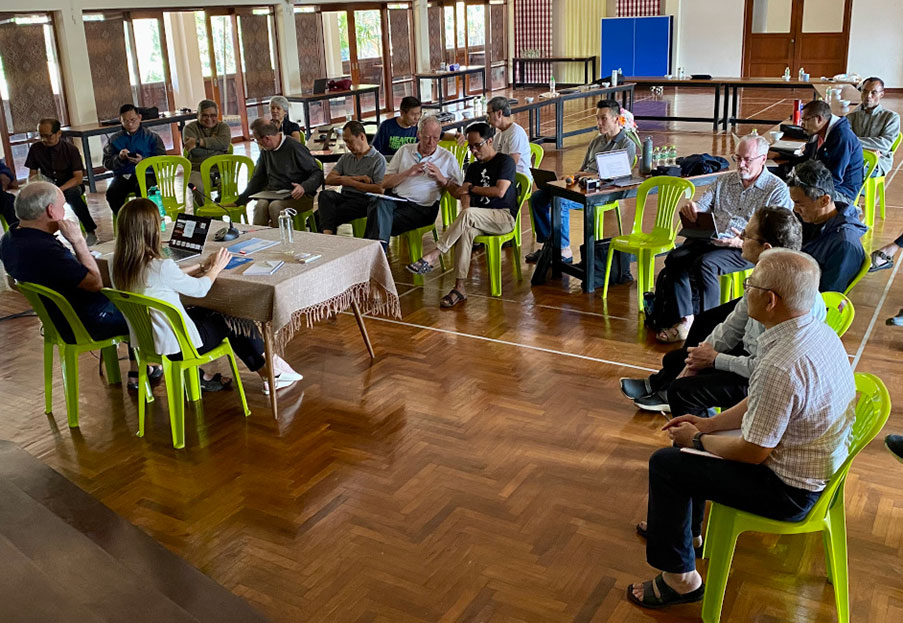Schools – Connected to their community and connected among themselves
José A. Mesa, SJ - Secretary for Education,
General Curia
[From “Jesuits 2023 - The Society of Jesus in the world”]
A new milestone in the history of the educational apostolate: the constitution of the Global Jesuit Network of Schools.
When Saint Ignatius and the first Jesuits decided to open schools, they realized the need to develop a model that would incorporate the best educational practices of their time. This is the reason for the Ratio Studiorum of 1599 that established the offices, curriculum, and best practices of Jesuit Education and served as the foundation for the first international network of schools with more than 800 institutions over the world before the suppression of the Society in 1773.
After the restoration of 1814, as a response to
the new political, social, and educational contexts the Jesuits tried, first to
update the Ratio, and then they
recognized that it was not possible anymore. Hence, the Society decided to
trust the governance and pedagogy of the schools to provincials within the
framework of the Constitutions and our pedagogical tradition. This decision
allowed the schools to respond to their national contexts and create strong
connections to their local communities. However, as an unintended consequence
it led to an increasing disconnection and even isolation of the schools. Fr.
General Arrupe recognized it and warned about the danger of this “splendid
isolation.” (Our Schools Today &
Tomorrow, # 25)
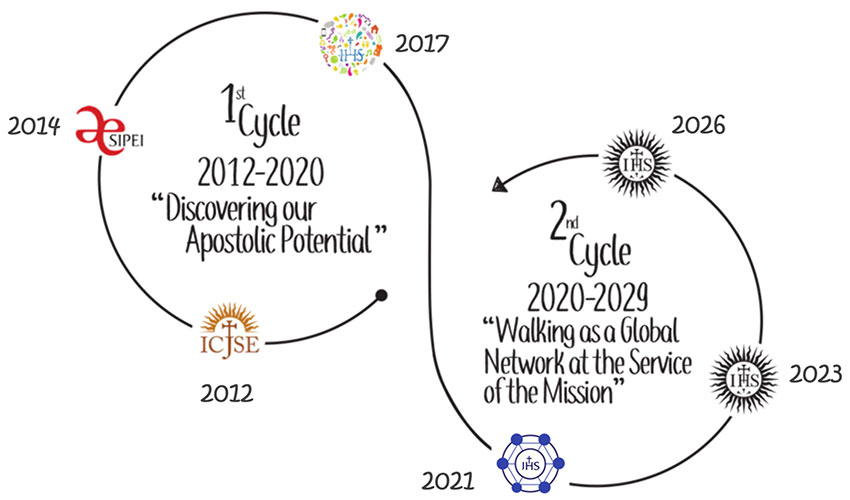
Current context
Today the political and social context has changed again. As GC35 claims, “Serving Christ’s mission today means paying special attention to its global context. This context requires us to act as a universal body with a universal mission, realizing at the same time the radical diversity of our situations.” (D2, #20) GC36 points out that “because of the magnitude and interconnectedness of the challenges we face, it is important to support and encourage the growing collaboration among Jesuits and Jesuit apostolates through networks. International and intersectoral networks are an opportunity to strengthen our identity [and] to serve a universal mission.” (D1, #35)
In recent times, our schools have been responding vigorously to strengthen collaboration through networks as a more apostolically effective way of proceeding. Provincial and Conference networks of all sizes flourish in the Society. Their accomplishments are many and their possibilities even bigger. Networks have created new opportunities for creativity, renewal, and innovation that a school could never have dreamed of on its own. Thus, Frs. Generals Adolfo Nicolas and Arturo Sosa have called upon the schools to create a culture of collaboration that can help them to respond to the great challenges of our time.
The Secretariat for Education (Secondary and
Pre-secondary) and ICAJE (International Commission on the Apostolate of Jesuit
Education) have started a cycle of international gatherings that have been
fundamental in building a culture of collaboration among our schools. The first
such meeting happened in 2012 at the International Colloquium of Secondary
Jesuit Education, organized by Boston College High School. Other important
gatherings followed: SIPEI (2014), JESEDU-Rio (2017), JESEDU-Global (2021). In
addition, in 2015 Educate Magis was
established “to nurture a vibrant online community connecting educators from
our Jesuit Global Network of Schools” at the service of the Society’s mission.
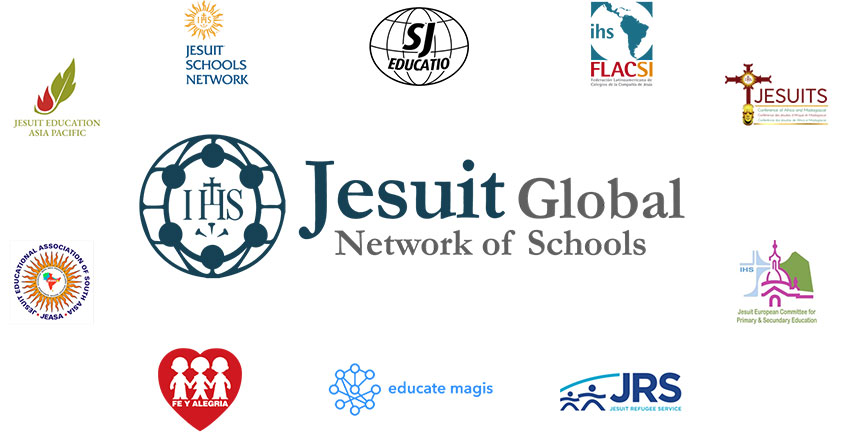
Jesuit Global Network of Schools
Thus, when the Secretariat and ICAJE decided to officially launch the Jesuit Global Network of Schools on 26 November 2021, within the framework of the Ignatian Year and the 400th anniversary of St. John Berchmans’ death, the development seemed a natural result of this historic process. The JGNS expresses the collective global identity of the Jesuit and Companion secondary and pre-secondary schools and networks committed to the Jesuit mission of justice and reconciliation (with God, within Humanity and with Creation) in our world today. It also expresses the commitment to strengthen collaboration, discernment, and networking as part of our contemporary way of proceeding. As Fr. General Sosa argued in his homily launching the network: “The scale of some of today’s problems in the ecological, social and technological fields requires a cooperation that goes beyond the local or regional level... The network that we are founding today is inspired by this desire to walk together and cooperate to better meet the challenges of our time.”
As Fr. Sosa explained, the deepest desire is “to contribute meaningfully to the building of a hopeful future that brings people closer to God, leading us to care for our common home and to walk alongside the world’s discarded in a mission of reconciliation and justice.”
The founding members of the Jesuit Global Network of Schools are:
• The Jesuit Schools Network (JSN) of Canada and the United States, established in 1936.
• The International Federation Fe y Alegría: Movement of Popular Education (Federación Internacional de Fe y Alegría: Movimiento de educación popular), 1955.
• The Jesuit Educational Association of South Asia (JEASA), 1961.
• The Secretariat for Education of the Society of Jesus in Rome, 1967.
• The Jesuit Education Commission of the Jesuit Conference of Asia Pacific (JCAP-Education), 1979.
• The Jesuit Refugee Service Education (JRS-Education), 1980.
• The Jesuit European Committee for Primary and Secondary Education (JECSE), 1986.
• The Latin American Federation of Jesuit Schools (FLACSI - Federación Latinoamericana de Colegios de la Compañía de Jesús), 2001.
• Educate Magis: the online community of Jesuit and Ignatian Educators, 2015.
• The Association of Jesuit Basic and Secondary Education in Africa and Madagascar (JASBEAM), 2021.

